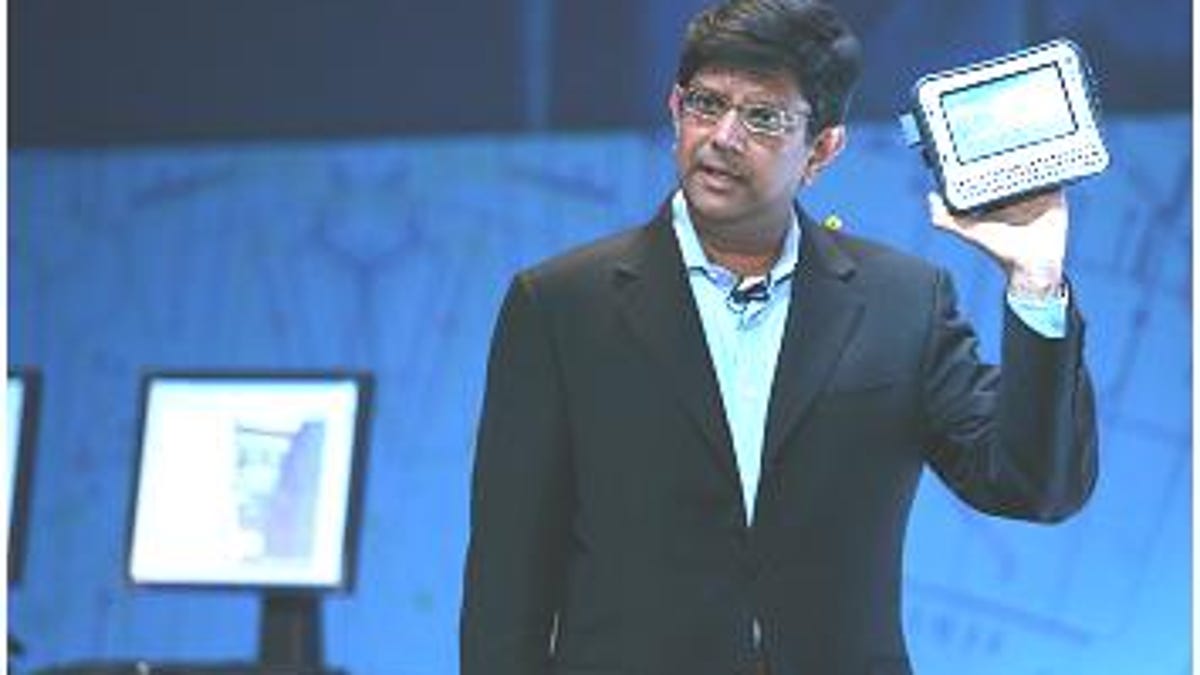Intel shuns Microsoft, taps Linux for mobile Net devices
Chipmaker's software initiative for mobile devices is all about Linux. Microsoft is given little more than lip service.

At the Intel Developer Forum in Shanghai this week, the buzz was about the Atom processor, mobile Internet devices, and Linux. What wasn't buzzing? Microsoft.
Welcome to the brave new world of computing sans Redmond.
At IDF, there was little media focus on Intel's next-generation Nehalem chip and even less on the Centrino 2 processor--both of which will run Microsoft software.
The focus was on devices that won't necessarily or exclusively run Microsoft software: Handheld-size MIDs--shorthand for mobile Internet devices--and Netbooks. Netbooks will run both Microsoft Windows and the Linux operating systems, but the MID category appears to be shaping up as a non-Microsoft enclave. MID makers, who are expected to begin shipping devices later this quarter, include Lenovo, Toshiba, Panasonic, and LG Electronics.
Anand Chandrasekher, Intel senior vice president and general manager of the Ultra Mobility Group, said in his IDF keynote: "As always, we partner with Microsoft." Then he proceeded to not mention Microsoft again--and mentioned Linux a lot. "We announced an initiative last year. A Linux-based initiative. In order to get the form factor down, to get the cost down, and to even get lower power levels beyond what was achievable. We have an entire ecosystem behind it. Ubuntu and Red Flag. The initiative is called Moblin," Chandrasekher said.
Aptly enough, the Moblin Web site is entitled: "mobile and internet linux project." That's pretty self-descriptive.
Whether MIDs succeed or not, only time will tell. But if they do succeed, it won't be on Microsoft Windows--at least not in the foreseeable future. Microsoft has recently hired Len Kawell, originally the CEO at Pepper Computer, a start-up focused on MID software, to scale Windows from smartphones (some of which run Windows Mobile) to MID-type devices with "larger screens and faster processors," according to a representative at Weber Shandwick, the P.R. firm that represents Microsoft's Mobile business.
Scott Rockfeld, Group Product Manager for Microsoft's Mobile Communications Business, said this in an e-mail Thursday: "Windows Mobile is constantly innovating the platform to meet the expanding mobile needs of our customers. MIDs are an exciting class of devices that address many of those needs, and we're focused on ensuring that Windows Mobile is a great platform for partners to build MIDs."
But that's probably news to a lot of the attendees in Shanghai listening to Renee James, vice president general manager of the Software and Solutions Group at Intel.
"This new category requires a new software environment. There isn't a built-in ecosystem of developers who have been doing MIDs," she said, describing the incipient market. "For MIDS, we, Intel, are establishing that ecosystem. We launched it in September. It's called Moblin.org. It's an open-source project. Intel has contributed the foundational stack. More than 500 member companies are contributing code into Moblin. And it's particularly strong in Asia."
If MIDs catch on--and that's still a big if (though Apple's popular iPhone is arguably a MID)--it will be refreshing to see a PC platform develop without Microsoft participation, or at least see a platform unfold in which Linux distributors may have an advantage over the software giant.

